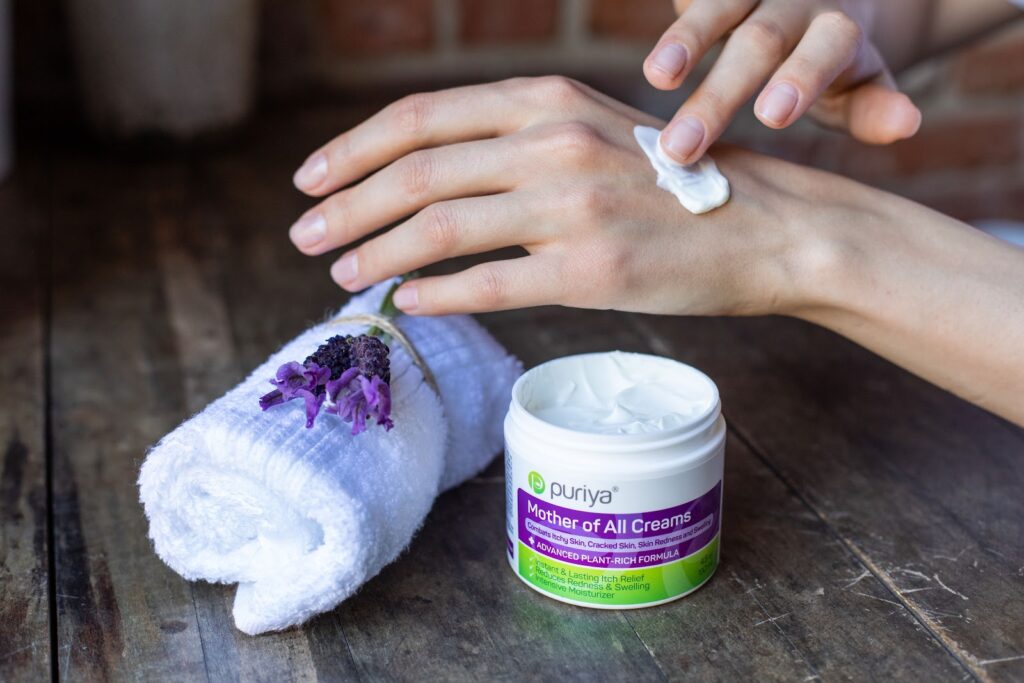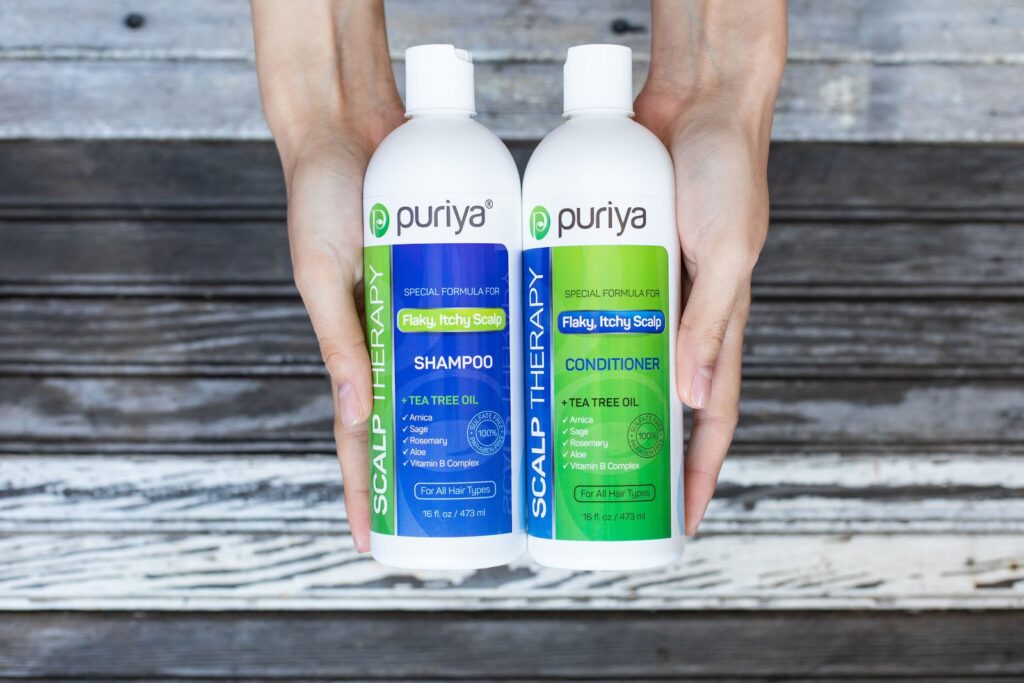

Attacking Seasonal Eczema
With a drop in temperature and a change in the seasons comes a shift in our health as well. Those affected by seasonal eczema understand these flare-ups all too well: the itchy, flaky skin, the red inflammation, the general discomfort that can dominate winter months. Eczema, also known as atopic dermatitis, is a skin condition characterized by a scaly, itchy rash on the top layer of the skin. During the winter it is naturally more difficult for the skin to maintain its moisture, leading to flare-ups of the rash, triggered by the cold, dry air, as well as the dry air created by many indoor heating systems.
Without the right care, seasonal eczema can wreak habit on your daily wellbeing. It can compromise your routine, cripple your productivity and leave your skin prone to months of flakes and fissures.
Winter doesn’t have to be the itchy, miserable experience you know it to be. Check out easy methods to attack eczema before it strikes, and arm yourself with tips and techniques that soothe flare-ups when they occur, for smooth, healthy skin this winter.
Our products make a difference – the Puriya Difference. Discover the secrets behind a plant-rich approach to your own health and wellbeing here!
Moisturize the Right Way.
Especially during winter time, your biggest weapon against seasonal eczema is one you can set and forget. A thick, plant-rich moisturizer barricades the skin from dry air, while at the same time hydrating skin layers deep and eliminating redness, swelling and itchiness. Stick to moisturizers that use botanical oils and extracts, and are free from ingredients that can irritate the skin.
Especially for those with existing eczema issues, moisturizing during the winter needs to be a regular activity, not only every day but also multiple times per day. Apply moisturizer before going outside, after washing your hands and bathing, after meals and before bed.
When looking for a moisturizer to prevent and soothe seasonal eczema flare-ups, try to find one with the following powerhouse ingredients:

- Aloe: A summertime staple for healing sunburned skin, aloe may also alleviate symptoms of eczema, especially in the winter. Already a natural moisturizer, aloe also has antimicrobial and wound-healing properties which can prevent infection when dry, cracked skin becomes infected.
- Shea butter: Shea butter has been found to relieve symptoms of eczema and can be used as any other moisturizer. It can act as a protective layer on the skin, locking in moisture while also nourishing the skin with its antioxidants.
- Amaranth oil: Amaranth oil is another oil with skin-healing properties. Many moisturizers will tout their use of squalene, without sharing that it is often derived from shark livers. Fortunately, amaranth is a natural, vegan squalene source. Look to use moisturizers which feature amaranth oil.
- Safflower Oil: Safflower oil offers a range of health and wellbeing benefits. In addition to its ability to improve your blood sugar levels, this powerful oil can bolster heart health while combating your inflammation. Safflower oil helps you fight itchy, dry skin while addressing eczema.
- Avocado Oil: Characterized by antioxidants and a variety of healthy fats, avocado oil offers users reduced cholesterol and improved nutrient absorption. Its fatty acids have been shown to improve symptoms of psoriasis and general skin health.
Drink More Water
Drink more water: it’s such a simple task that it’s one we often forget. During the summer, hot temperatures and humidity can drive us toward the nearest water fountain. During the winter, it’s arguably even more important to stay hydrated.
When it comes to seasonal eczema, hydration is key. Your skin will reflect the state of your internal hydration, and it starts on the inside. By drinking plenty of water, we can replenish the moisture that we lose to the cold, dry air. Your skin thanks you in advance for your increased hydration during the coldest (and dryest) months of the year.
Change How You Bathe

While hot showers may initially soothe the itchiness of winter eczema, that relief comes with a cost. Hot showers may further dry out skin and encourage eczema flare-ups. Instead, shower or bathe in lukewarm water. Use gentle cleansers instead of harsh soaps, and avoid directly scrubbing skin, especially skin already adversely affected by a dry atmosphere. Correctly bathing and moisturizing before bed can also prevent skin from losing moisture while you sleep.
Avoid Certain Materials
Certain materials can irritate the skin and cause eczema to naturally flare up. We typically wear more layers during the winter, our first defense against frigid, outdoor temperatures. While layering, it is important to pay attention to fabrics that bother the skin, especially if these fabrics are in direct contact with the arms, legs and abdomen. Avoid wearing too many layers, and keep fabrics such as wool and nylon away from the skin. Instead, wear breathable fabrics, such as cotton. In place of wool gloves, which tend to scratch already dry skin, consider a silk or polymer alternative. Avoid clothing with rough seams and loose threads, as these can further irritate dry skin.
It is also important to remember to sleep atop sheets and bedding made of breathable, non-irritating materials, to protect your skin during nighttime hours.
Beware of Irritants
Unfortunately, harsh ingredients exist all around us. If you have switched to a gentle cleanser and have been avoiding itchy fabrics but still are experiencing flare-ups, you may also want to consider eliminating perfumes from your daily routine. Perfumes and dyes are common skin irritants; switching to a fragrance-free, dye-free laundry detergent may assist in your fight against eczema. You may also want to avoid using a dry-cleaning service during winter months or during seasonal eczema flare-ups, as their chemicals can trigger bouts of itchy, irritated skin.
Use a Humidifier
As temperatures drop, humidity follows. In-home heating systems will warm the air, but in the process they also succeed in furthering drying out your environment. A humidifier recirculates moisture back into the air, and invaluable process in allowing your skin to retain moisture. Using a humidifier, especially when you sleep, can help counteract the drying effects of heating systems on eczema-prone skin.
As a DIY alternative to a humidifier, try leaving out a small bowl of water on a table or a counter, to evaporate. You could further add essential oils to the water in the bowl. Be sure to change the water regularly to avoid bacteria growth.
Eczema Makes Winter Difficult. It Doesn’t Need to Be That Way.
Taking steps to keep skin moisturized and safe from irritants can go a long way. If you’re looking for a moisturizer that combines many powerhouse ingredients, you need to try our Mother of All Creams. Made from a combination of oils, including avocado and amaranth, aloe, and antioxidants, it packs a punch in terms of moisture-locking, nourishing ingredients. Thousands have found it effective in clearing eczema flare-ups completely!
Don’t let your eczema get the best of you this winter. Powerful, plant-rich Puriya ingredients can help soothe dry, itchy skin and promote long-lasting health. It’s worked for thousands – see what it can do for you!
The first step in stopping seasonal eczema is eliminating the factors responsible for causing it. With a combination of the tips above and our products created with eczema in mind, you can safely work toward rendering eczema a thing of the past.
Tags: Seasonal Eczema